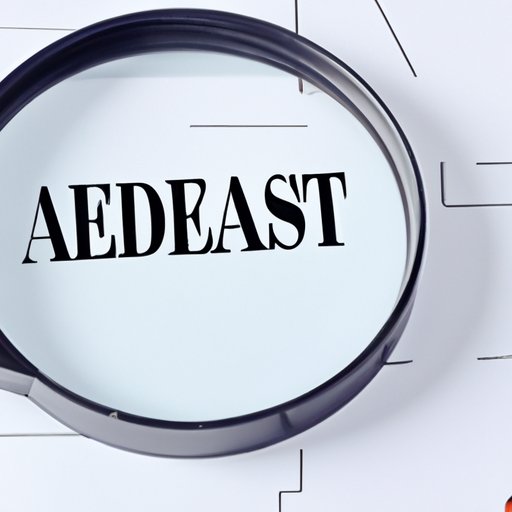
Introduction
When a loved one passes away, it can be challenging to locate their assets. This can be a stressful and overwhelming process, especially if you are unsure where to begin. Fortunately, there are several ways to find assets of a deceased person for free. In this article, we will provide you with some tips and resources to help you navigate this challenging process.
Start with Public Records
Public records can be an excellent resource for locating assets of a deceased person. A public record is any document or piece of information that is not considered private and can be accessed by the public. Some public records that may be helpful in this process include property deeds, tax records, and probate court filings.
You can access public records both online and in-person. Many cities and counties have online databases that allow you to search for property deeds and tax records. Probate court filings may also be found online. If you prefer an in-person search, you can visit the city or county courthouse in which the deceased person lived or owned property.
Check with Financial Institutions
Another excellent resource for locating assets of a deceased person is financial institutions. Banks, credit unions, and other financial institutions can hold information about a person’s assets, such as bank accounts, stocks, and bonds. However, they will require specific information from you, such as a death certificate and proof of your relationship to the deceased person.
When communicating with financial institutions, it is essential to have all necessary documentation to avoid delays in the process. Be courteous when discussing the sensitive subject of your loved one’s finances. Some institutions may have policies about the information they can share, so be prepared to provide additional documentation if necessary.
Search Online Databases
There are several databases available online that can assist you in locating assets of a deceased person. One of the most useful databases is the National Association of Unclaimed Property Administrators (NAUPA). NAUPA maintains a database of unclaimed property, which includes items such as bank accounts, uncashed checks, and stocks.
You can search the NAUPA database online by visiting their website. It is essential to note that just because property is listed as unclaimed does not mean that it belongs to the deceased person. Further research may be necessary to confirm ownership.
Look for Insurance Policies
Insurance policies can be an important source of assets for a deceased person. Life insurance policies, annuities, and other types of insurance policies may hold significant value. It is essential to determine whether the deceased person had any insurance policies and to track down any information about them.
If the deceased person was employed, contacting their employer may help you locate any insurance policies they may have had through their workplace. If the person was retired, contacting their pension or retirement plan provider may help you locate any policies they may have had through that plan. It is also a good idea to check with any professional organizations or trade associations they may have been affiliated with. These organizations may offer insurance policies or benefits to members.
Talk to Family and Friends
Friends and family members can be a valuable source of information when trying to locate assets of a deceased person. They may be aware of assets that were not previously documented or know of additional resources to help in your search. When talking to family and friends, it is essential to be respectful and sensitive to their grief.
Suggested questions to ask include whether they are aware of any bank accounts, retirement plans, or insurance policies that the deceased person may have had. You can also ask if they are aware of any safe deposit boxes or other assets that the deceased person may have owned.
Hire a Private Investigator
If all other options have been exhausted, or if you have reason to believe that significant assets are still unaccounted for, hiring a private investigator may be necessary. A private investigator can help locate assets through research and investigation. They can also collect evidence to support any legal claims that may arise in the process.
When hiring a private investigator, it is essential to choose a reputable investigator who is licensed and insured. It is also essential to have a clear understanding of the fees involved and what to expect from the process. You should also ask for references and check online reviews before choosing a private investigator.
Conclusion
Locating assets of a deceased person can be a complicated and time-consuming process, but there are several resources available to help. By starting with public records, checking with financial institutions, searching online databases, looking for insurance policies, talking to friends and family, and hiring a private investigator if necessary, you can increase your chances of finding all assets that belonged to your loved one. If you are feeling overwhelmed, remember to take things one step at a time, and be persistent in your search.





